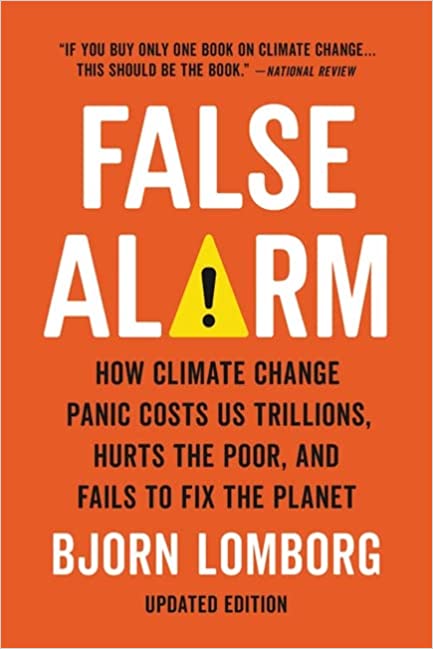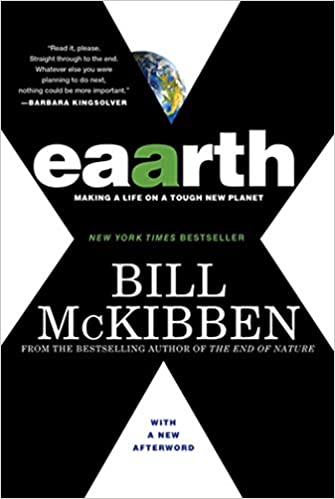Hurricanes batter our coasts. Wildfires rage across the American West. Glaciers collapse in the Arctic. Politicians, activists, and the media espouse a common message: climate change is destroying the planet, and we must take drastic action immediately to stop it. Children panic about their future, and adults wonder if it is even ethical to bring new life into the world.
Enough, argues bestselling author Bjorn Lomborg. Climate change is real, but it’s not the apocalyptic threat that we’ve been told it is. Projections of Earth’s imminent demise are based on bad science and even worse economics. In panic, world leaders have committed to wildly expensive but largely ineffective policies that hamper growth and crowd out more pressing investments in human capital, from immunization to education.
A new epilogue details climate lessons from a year of global economic shutdown due to COVID-19, and from our increasingly costly but often very ineffective climate policies. False Alarm will convince you that everything you think about climate change is wrong. It points the way toward making the world a vastly better, if slightly warmer, place for us all. Amazon
Overview
Our next book discussion is going to be more subject based than specific book based. Though we have an agreed book, False Alarm, we are looking at more generally discussing the subject of climate change and how we should respond to it. As part of this we are going to try and bring in many different perspectives via books, podcast, videos and anything else. This is a very current and important subject.
The author of False Alarm, Bjorn Lomborg (link to his site) has been a very controversial figure in the climate change debate. He and his beliefs have been attacked by the "environmentalists" for decades. A good and pretty neutral description of this back and forth is on the Bjorn Lomborg wikipedia page. As preparation for this discussion I am going to post a variety of "neutral" sources on climate change on this page and some sources who are proponents on different sides of the subject.
The UN
Within the climate change debate the role of the UN and its research has been central. The climate change "greens" (I am going to refer to the group of people who believe that climate change is our top priority and believe that it is an immediate and existential threat as "greens". I hope this to be a neutral term.). Anyways, the climate change greens often site the UN has sources proving the urgency and extent of the issue. As such, I think it is important to know what the UN actually says.
The UN has published many different reports on climate change and they can be found and downloaded on their reports page. The generally accepted gold standard report is the IPCC Sixth Assessment Report. On this page you will find a summary report, the full report, and others. The summary report is only about 33 pages long and not too scientifically technical to read. It was written with policy makers as the target audience.
Republican Take on COP27
Is the World Ready for Rational Environmentalism?
This is a podcast with many of the main Republicans dealing with environmental issues. They have an interesting take on the issue of climate change and what our response should be. This is a good podcast to help understand where their Republicans are coming from on this issue and what their solutions are.
"This episode was recorded live at COP27—the 27th annual United Nations Climate Change Conference. Dan Crenshaw joined Reps. Greg Murphy, Garret Graves, Mariannette Miller-Meeks, John Curtis, and Tim Walberg at the conference to advocate for real solutions to America’s energy crisis. They discuss what they heard from policymakers and leaders at the conference, cover which countries are doubling down on renewables and which countries are opening up to nuclear/natural gas/carbon capture, highlight the ramifications of Biden’s energy policies on costs and emissions for America and the globe, and much more.
Congressman Greg Murphy (NC-03) @RepGregMurphy
Congressman Garret Graves (LA-06) @RepGarretGraves
Congresswoman Mariannette Miller-Meeks (IA-02) @RepMMM
Congressman John Curtis (UT-03) @RepJohnCurtis
Congressman Tim Walberg (MI-07) @RepWalberg"
Videos
Statistician Analyzes "Climate Change Makes Hurricanes Worse" Claim
This is an interesting 15 minute video or so with Joe Rogan and Bjorn Lomborg discussing climate change with a special emphasis on hurricanes and climate change.
Books
I asked David to ask a "smart, informed, green" friend for some book recommendations to provide a counter point to Lomburg. He came up with a very good list. Read in order Eaarth by Bill McKibben, Under the Sky We Make by Kim Nicholas, and The Future We Choose by Christiana Figueres. From a Christian green perspective Caring for Creation: The Evangelical's Guide to Climate Change and a Healthy Environment by Paul Douglas.
Eaarth: Making a Life on a Tough New Planet
"Read it, please. Straight through to the end. Whatever else you were planning to do next, nothing could be more important." (Barbara Kingsolver)
Twenty years ago, with The End of Nature, Bill McKibben offered one of the earliest warnings about global warming. Those warnings went mostly unheeded; now, he insists, we need to acknowledge that we've waited too long and that massive change is not only unavoidable but already under way. Our old familiar globe is suddenly melting, drying, acidifying, flooding, and burning in ways that no human has ever seen. We've created, in very short order, a new planet, still recognizable but fundamentally different. We may as well call it Eaarth.
That new planet is filled with new binds and traps. A changing world costs large sums to defend - think of the money that went to repair New Orleans, or the trillions it will take to transform our energy systems. But the endless economic growth that could underwrite such largesse depends on the stable planet we've managed to damage and degrade. We can't rely on old habits any longer.
Our hope depends, McKibben argues, on scaling back - on building the kind of societies and economies that can hunker down, concentrate on essentials, and create the type of community (in the neighborhood, but also on the Internet) that will allow us to weather trouble on an unprecedented scale. Change - fundamental change - is our best hope on a planet suddenly and violently out of balance.
From the Amazon audible description
I found this book profoundly shocking. It is a book that works hard to portray the near future of the earth as catastrophic. What was fascinating to me was that due to the fact that it was published around 2009 and the book is full of 10 year predications. In nearly every case each prediction was not just wrong, but wildly wrong.
Nuclear
The Realignment
This was a mind blowing podcast for me. This podcast generally covers a variety of current political and international affairs subject. In this podcast, 344 | Inside the Nuclear Energy Renaissance with Bret Kugelmass, the host interviews the CEO of Last Energy which is a company that builds nuclear power plants. Kugelmass's claims were mind blowing to me. The two biggest are that a total melt down by a fission nuclear reactor is not very dangerous and that nuclear waste is only dangerous for about 3 months. These claims were mind blowing to me. I had thought that catastrophic melt down would be regionally dangerous and that nuclear waste was deadly for at least centuries. These two "truths" caused me to be somewhat hesitant about nuclear fission. With those two "truths" being shown to be wrong I am now a full throated believed in nuclear fission.
His history of the nuclear power history and its role in growing the anti-nuclear movement was fascinating.
Possible Questions to Discuss
After doing this study there are a large array of subjects we can cover. Here are a few just to stimulate thinking and discussion.
- Humans as a species appear to suck at understanding large, complex, and ambiguous problems. We were so wrong about COVID. We appear to be incredibly wrong about climate change. At a very fundamental issue what do we need to do to effectively understand the problem?
- How do different interest groups define "the problem"?
- What do we think is the problem we need to solve?
- Who is for and against solving the "problem" and why?
- What are pros and cons for different solutions to this problem?
- David, would you talk to us more about nuclear reactor melt down and nuclear waste?


